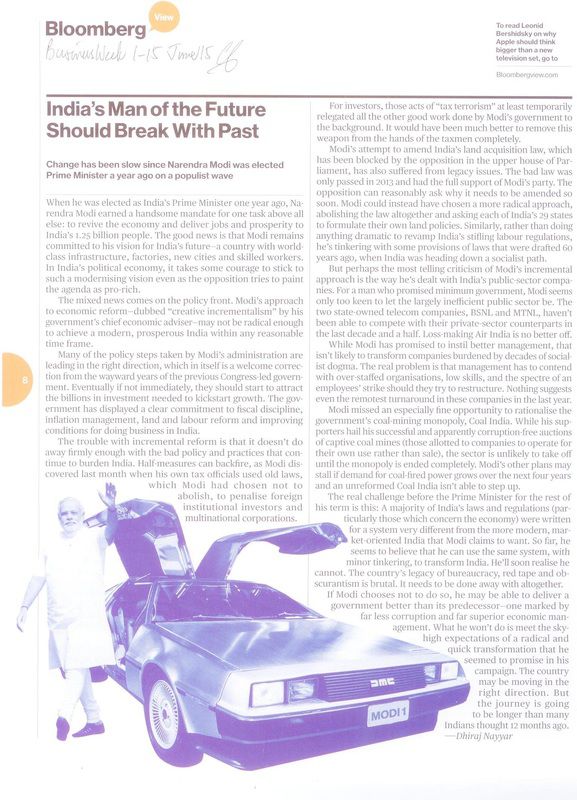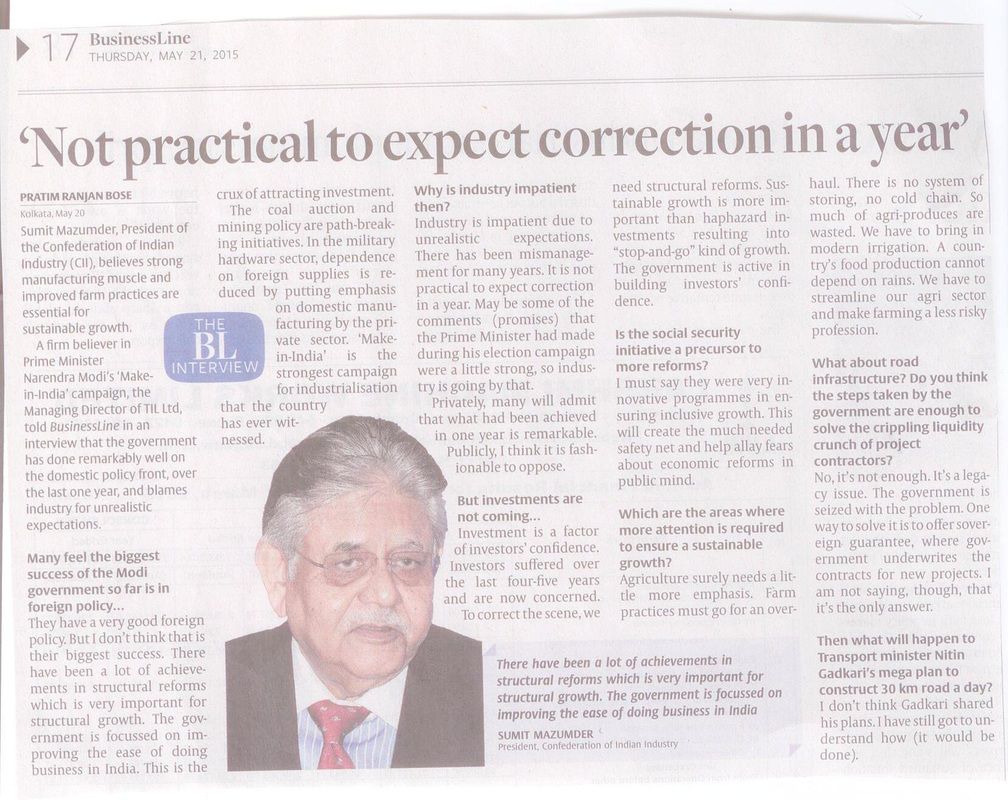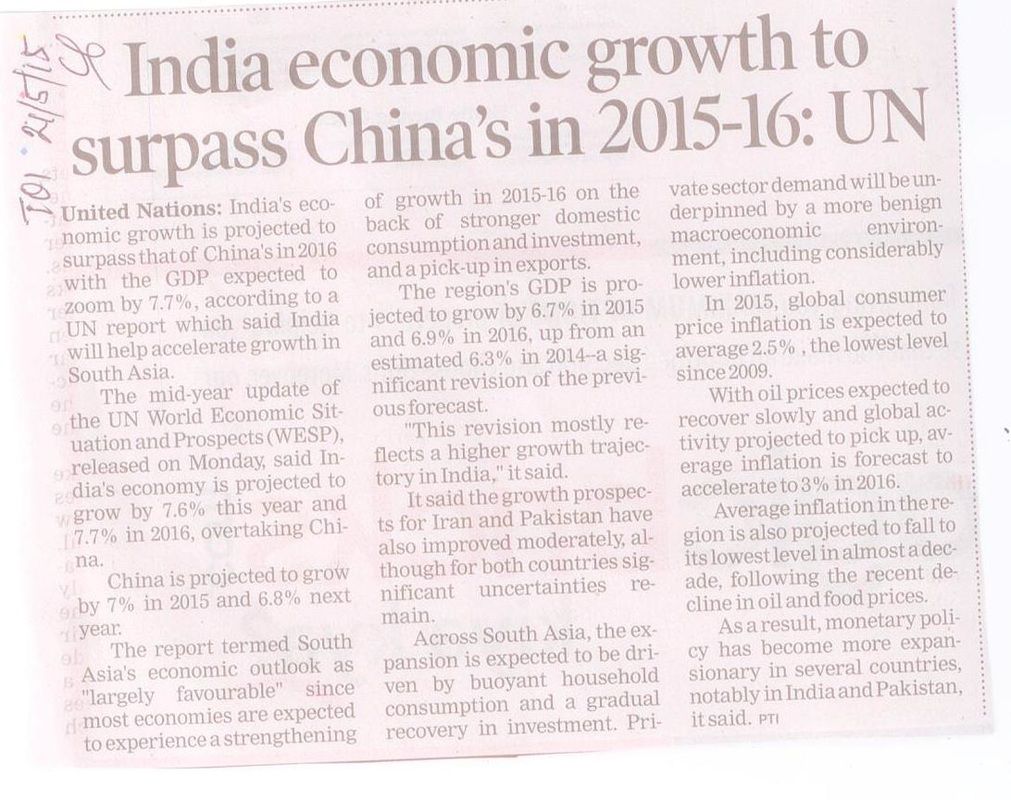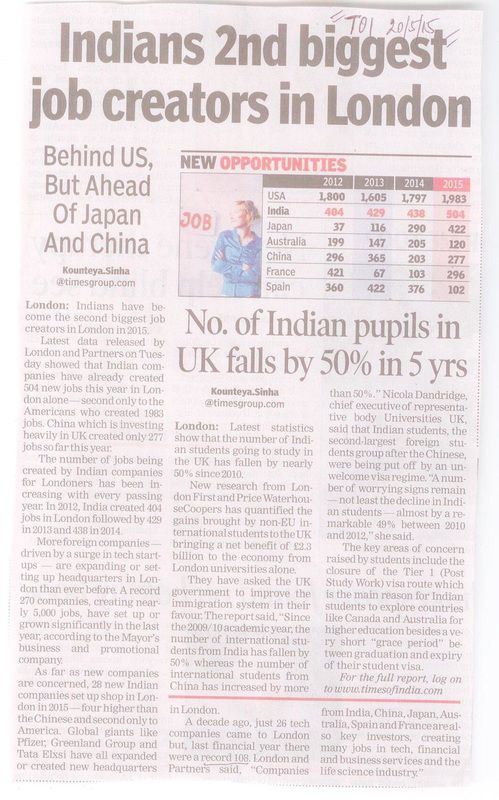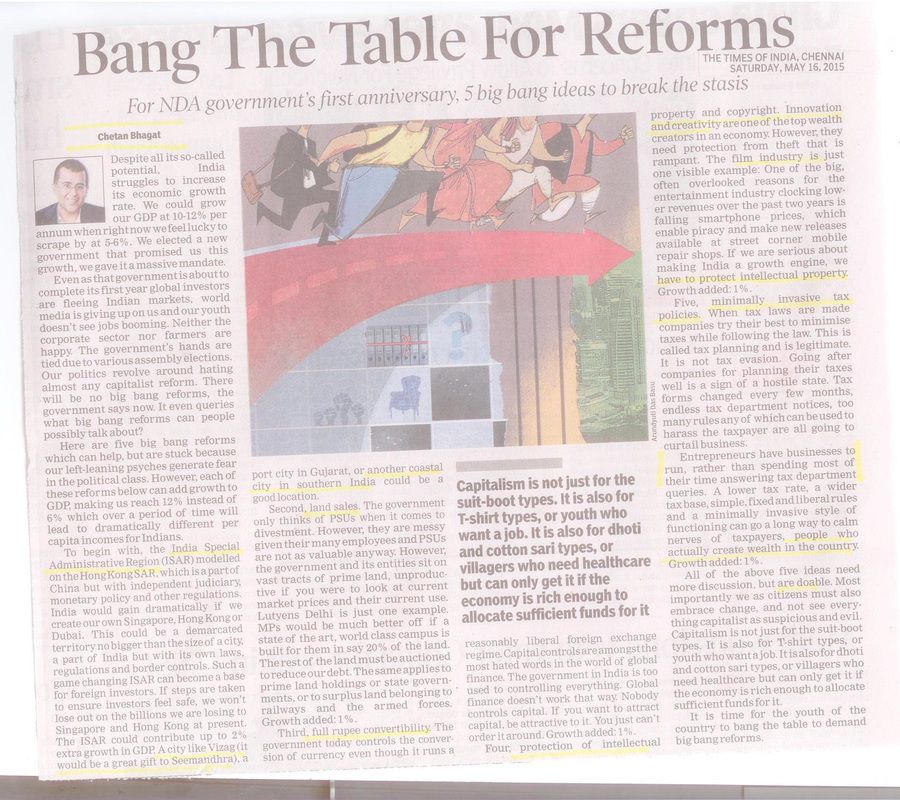Leadership is not an innate trait that you’re born with. It can be learned. The key is to practice before you have the official title. Start by focusing on the choices you make now, such as who to put on your team or what vendor to use for your project. Recognize that you likely don’t know everything. Making decisions based on incomplete information is a skill that every leader must master. Once you’ve acted, ask yourself: Was that the right decision? Could you have done something differently? This will get you comfortable with making decisions, acting upon them, and reflecting on their outcomes. Then, learn from your inevitable mistakes. You will build knowledge and skills as you work up to the larger decisions with broader consequences that all leaders have to make.
“Wilderness Leadership—on the Job” by John Kanengieter and Aparna Rajagopal-Durbin.
NEW DELHI: The Narendra Modi administration’s focus on ease of doing business is expected to help India report significant gains when the new rankings are released but enforcing contracts is one area where the government seems to have run up against legal hurdles, resulting in fewer-than-expected moves to simplify the cumbersome process.
When it comes to enforcing contracts, India ranked a lowly 186th among 189 countries, with only Angola, Bangladesh and Timor-Leste placed lower. While officials say that the attitudes have a major role to play, experts reckon that the Indian legal process is long and cumbersome. World Bank arm International Finance Corp’s Doing Business report measures the efficiency of the judicial system in resolving commercial disputes based on the time taken, the procedures involved and the cost incurred. On an average, it costs almost 40% of the claim, involves some 46 procedures and takes almost four years, 1,420 days to be precise, in Mumbai or Delhi. What’s more, the Doing Business report has not recorded a single reform move in India for the last eight years.
As a result, when the government prepared a detailed blueprint for all parameters, eight steps were planned, beginning with commercial courts in Delhi and Mumbai – two centres which are studied by IFC team. But apart from the commercial courts and the recent Supreme Court order paving the way for the establishment of the National Company Law Tribunal, things have moved rather slowly.
The moves to be initiated include enabling district courts to completely switch over to e-management of commercial cases, which includes e-filing of complaints, e-service of summons and availability of digitally signed judgments on the web. The plan also included sensitizing district courts about exploring mediation, arbitration and conciliation under section 89 of the Code of Civil Procedure.
Similarly, there should be a limited number of adjournments so that cases are decided in a shorter span of time.
Sources in the government acknowledge that there has been little progress on several of the proposals that have been discussed over the past year to improve India’s ranking on enforcing contracts. And, it is unlikely that the IFC team misses that, making it tougher for India to make significant gains in the Ease of Doing Business Rankings, sources acknowledged.

